I have been collecting questions that have seen from travelers into this set of common questions about travel health.
How do I avoid getting COVID-19 while traveling
While we are no longer in the middle of a COVID-19 pandemic, that is not to say that it has gone away. Instead, it has become endemic and will likely be around for the rest of our days like flu. My 2023 Christmas trip was interrupted by COVID-19 as we visited my daughter. One by one all the members of the house got sick and we had to cancel plans to get together with my son-in-law’s family. What we know about Covid-19 is that:
- It Transmits as a respiratory illness but once in the body behaves as a circulatory illness and can seriously affect the brain and heart as well as lungs. Newer strains of the virus are more contagious than the original virus, but fortunately seem to be less lethal because people now have immunity from vaccines and/or previous exposure.
- It is caused by a new virus that is related to previous coronavirus diseases like Severe Acute Respiratory Syndrome (SARS) and Middle East Respiratory Syndrome (MERS)
- There are no vaccines for respiratory illnesses that are 100% effective. The current COVID-19 vaccines from Pfizer and Moderna were originally very effective in preventing you from catching COVID-19 when they were released but that effectiveness has decreased as new forms of the virus have appeared. However, all vaccines show a higher effective rate at preventing serious illness and death.
- Many people who get COVID-19 are asymptomatic but are still contagious
- You can catch COVID-19 by touching infected surfaces but current research seems to say that the number one way of catching it is by breathing in the droplets from the breath of someone who is infected. Don’t think of this as being sneezed on but just breathing the same air as someone who is infected.
- You are more likely to catch COVID-19 by being in close contact with an infected person in an enclosed space.
Given all that, the CD recommends the wearing of a mask over the nose and mouth. This predominantly protects other people around you if you are infected. Some higher-end N95 masks and face shields offer more protection to the wearer. The guidelines also recommend washing your hands, using hand sanitizers, and keeping 6 feet away from other people.
What is the Zika Virus and how do I avoid it?
Zika virus is a relatively new health issue related to travel. It is a mosquito-borne virus. The original reporting on Zika was that it could cause birth defects when contracted by pregnant women but did not seem to have serious effects on others. But, additional study seems to indicate that Zika may also be linked with Guillain-Barré Syndrome which is an autoimmune disease where your body’s immune system attacks its own nerve cells. That’s not good.
At this time there is no vaccine for Zika. So avoiding it involves taking steps to avoid mosquito bites and avoiding the regions where Zika is present. The number of regions with mosquitoes carrying Zika is unfortunately growing and currently contains much of tropical Latin America and some southern regions of the United States.
How do I Avoid Malaria?
Malaria is another mosquito-borne virus for which there is no current vaccine. Malaria is much less common in the developed world than it was one or two hundred years ago because of programs for mosquito abatement. Draining stagnant water or covering that water with a small film of oil will prevent mosquitoes from laying their eggs there and will disrupt the mosquito life cycle.
In the developing world, Malaria still kills up to 2.7 million people a year.
There are preventive medicines that decrease the chance of contracting malaria when you are bitten by malaria-carrying mosquitoes. For shorter stays, many doctors will prescribe Malarone or the older Lariam® (mefloquine hydrochloride). In some cases, people who take Lariam get vivid dreams and some of the symptoms of malaria. These drugs are generally not recommended for longer stays. Some doctors will prescribe a low-grade antibiotic for a longer stay. Consult with your doctor or your local travel clinic.
 What is Deep Vein Thrombosis (DVT)?
What is Deep Vein Thrombosis (DVT)?
An estimated 300,000 first-time cases of DVT (a blood clot, usually in your leg) occur in the United States every year, most of which have nothing to do with travel. To decrease your chance of blood clots in general, quit smoking and lose weight.
On long flights, if you don’t get up and move around, you increase your chances of developing a blood clot or Deep Vein Thrombosis. Deep vein thrombosis can cause leg pain or swelling but the real danger is what happens if that clot breaks free. It can have serious or lethal consequences.
To minimize your chance of getting blood clots on a flight drink plenty of fluids, but avoid coffee and alcohol, get up and move around and consider wearing compression stockings. Statistically, people who get a window seat on a long flight are more likely to get DVT because they are less likely to get up and go for a walk.
Talk to your doctor before your trip if you are prone to getting blood clots.
How do I avoid Traveler’s Diarrhea / Montezuma’s Revenge / Delhi Belly?
Montezuma’s Revenge and Deli Belly are two common nicknames for traveler’s diarrhea. Travelers’ diarrhea is usually picked up when you are exposed to microbes for which you have not built up immunity.
The general rules about eating local food is the
- peel it
- cook if
- boil it
- or forget it
Avoid fruits that can’t be peeled, salads, and other raw vegetables. If you can’t or choose not to avoid these fruits and vegetables wash them in an iodine solution like Microdyn (popular in Mexico).
Contaminated water is a common source cause of this traveler’s diarrhea. Only drink liquids that have been sterilized through boiling, UV sterilizers (like a Steripen or a water bottle with built-in UV sterilization), or sterilization pills, or commercially processed liquids like soft drinks and beer. Consider this a chance to try the local beer.
I always travel with an over-the-counter medicine for diarrhea when I’m traveling. When traveling to a developing country some travelers will ask their doctor or a travel clinic for a prescription for an antibiotic like Cipro to treat traveler’s diarrhea in case they do succumb to it.
What vaccinations do I need?
What vaccinations you will need depends on which specific countries you will be traveling to. The best resource for determining what you need is this guide from the Center for Disease Control. Consult your physician or your local travel clinic.
- Book Your Accommodation HERE
- Search for Great Tours HERE
- Get a Car Rental
- Buy Travel Insurance
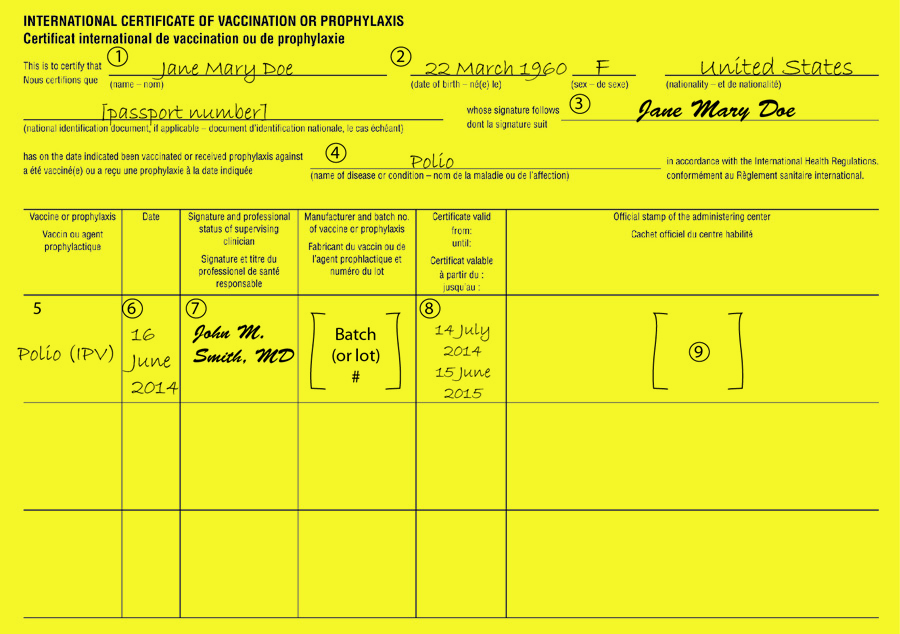
Your doctor or local travel clinic can provide you with an International Certificate of Vaccination or Prophylaxis (standard vaccination record) which you should keep with your passport and bring with you when you travel. You will probably not be asked for this when visiting Europe or other countries where you can drink the water safely but may be required to show it in developing countries.
If you are visiting Western Europe, Canada, or Australia you should not need any vaccinations, but it’s always a good idea to be up-to-date on your tetanus and other basic vaccinations.
If you head into tropical regions with mosquito-borne diseases then vaccinations like yellow fever will come into play. Yellow fever vaccination is only good for two years, unlike many vaccinations which can last as long as 10 years.
When you are traveling to regions where the water supply is not safe to drink, then you are more likely to need vaccinations like hepatitis A, hepatitis B, and typhoid.
How can I minimize Jet Lag?
Your basic tools in adjusting to time zones are sleep and sunlight. It can be helpful, when you have an option, to choose a flight where you arrive (preferably tired) in the early evening. If you arrive in the morning, try and stay awake and in sunlight until the correct bedtime in the local time zone.
The sooner you can adjust your schedule to go to sleep at the appropriate local time, the sooner you can start getting up at the appropriate local time. I often leave hotel curtains open so that we wake up when the sun comes up. This does not work as well in regions like Alaska or Northern Europe in the Summer when the sun comes up way too darn early.
Some other articles for more information about fighting jet lag and sleeping on planes:
- An Expert’s Guide to Defeating Jet Lag
- 10 Tips to Combat Jet Lag
- How to Sleep on a Plane – Gear that Helps
Can I fly when Pregnant?
This is clearly a question you want to ask your doctor who knows the status of your health better than some random travel blogger, but most healthy women can fly safely into about the mid-third trimester.
Flying after that will make your flight attendants more nervous. There are a surprising number of babies born on commercial jets in any given year. Also, you are more likely to be having issues with swollen ankles late in your pregnancy which flying will not make better. Sleep is more difficult in the later stages of pregnancy so fighting jetlagged may be a bit more difficult as well.
That being said, my wife and I traveled to London when she was six months pregnant with our second child while we had our first child in tow. He was less than a year and a half old as our children are only 17 months apart. There was only one day where she succumbed to hormones after a morning when no escalators or elevators we tried in London worked. She dissolved into a wall of tears. Going to tea and cutting the day’s excursion short proved to be the right solution.
Do I need Travel Insurance?
Statistically, the things you are likely afraid of like sickness or terrorism are not your biggest dangers when you travel. As here at home, more Travellers by far are injured or killed in traffic accidents there anything exotic.
There are different types of travel insurance. Some are just travel interruption insurance that pays you when flights are delayed or canceled or when your plans have to change last minute. But from a health point of view or two things to look for:
- The first is travel insurance which will cover medical expenses while you are traveling. I have a friend who had a detached retina on a trip and was glad for this type of insurance. This type of insurance will expire when you return home.
- The second thing to look for and travel insurance is repatriation. Another friend Dave from ThePlanetD.com tripped in the Amazon while running for a different camera lens. He broke his back. His travel insurance not only paid for the medical care but also paid to return him home on a medical air ambulance. This is not the kind of bill you ever want to see.
Read more at What is Travel Insurance? Do I Need Travel Insurance?
+Chris Christensen | @chris2x | facebook
2 Responses to “8 Frequently Asked Questions about Travel Health in 2024”
Leave a Reply
Tags: article, travel 101, travel health, travel tips


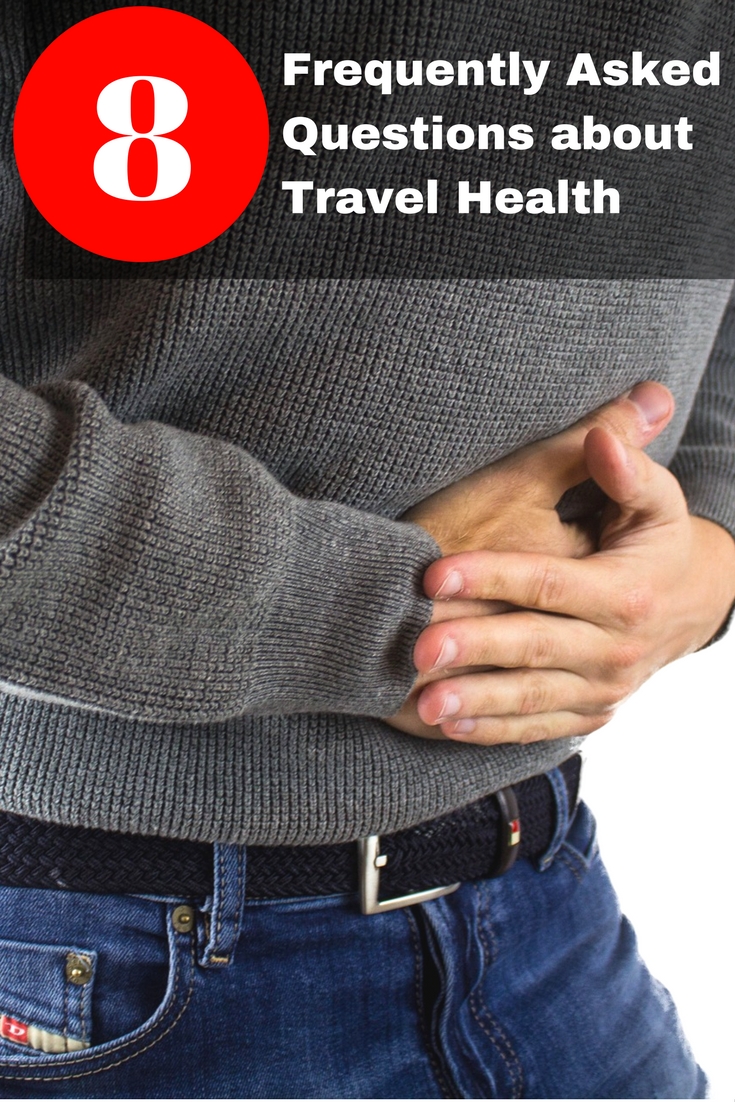 What is Deep Vein Thrombosis (DVT)?
What is Deep Vein Thrombosis (DVT)?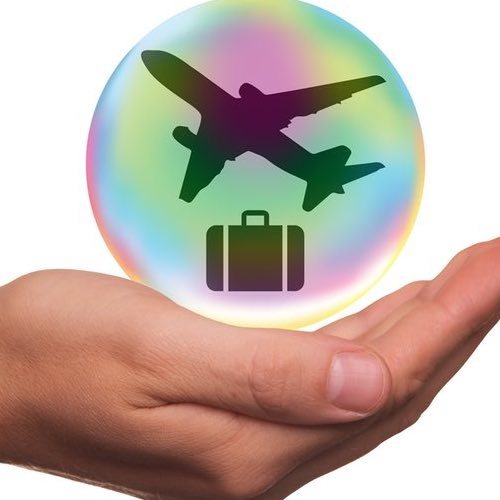 What is Travel Insurance? Do I Need Travel Insurance in 2024?
What is Travel Insurance? Do I Need Travel Insurance in 2024? 25+ Air Travel Questions Answered
25+ Air Travel Questions Answered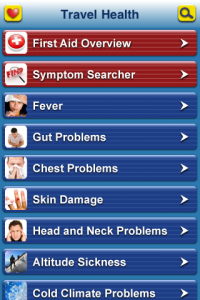 Travel Health iPhone App – First Aid in Your Pocket
Travel Health iPhone App – First Aid in Your Pocket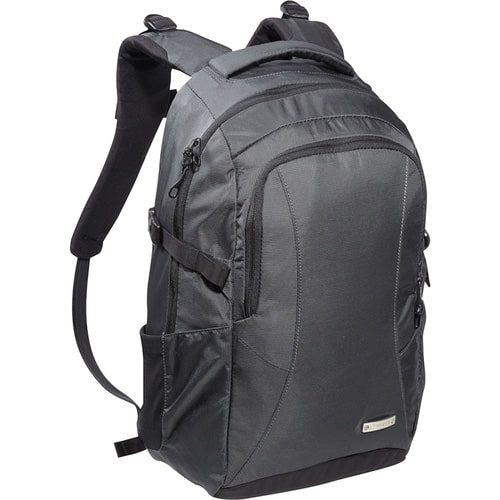 Travel Resources – What I Pack (updated for 2024)
Travel Resources – What I Pack (updated for 2024)

Savio Wong
Says:August 6th, 2018 at 3:45 pm
Some excellent info.
I have a couple of questions:
1) would a person who is currently going through cancer treatment be able to purchase travel insurance?
2) how about a former cancer patient?
Also, you may wish to add a section on ticks because of Lyme Disease. I have resorted to always wear socks and long pants if I’m going for a hike.
chris2x
Says:August 8th, 2018 at 8:32 am
hmm, good suggestion and questions